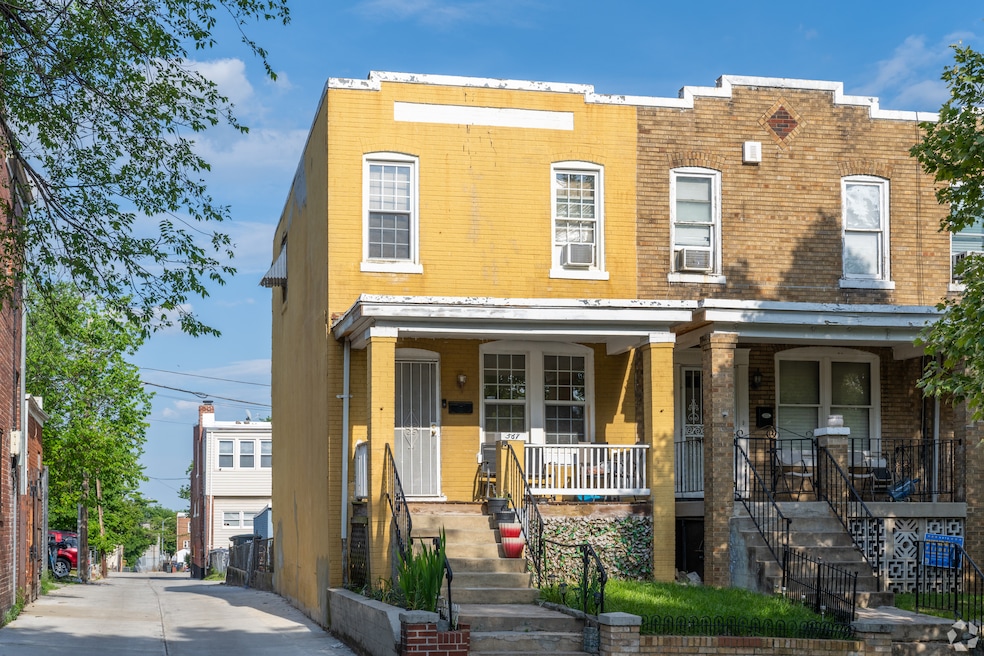Washington, D.C. leaders worried about propping up the city’s housing market want to allow owners of residences with up to four units to sell their property without having to first ask their tenants if they want to buy it.
Mayor Muriel Bowser has until the end of next week to respond to the City Council, which approved an amendment last month exempting houses with two to four units from the Tenant Opportunity to Purchase Act. The city approved the law in 1980 to protect renters from displacement amid a wave of new investment in some neighborhoods. The law has seen a few changes since, notably in 2018 when the city approved an exemption for single-family houses.
A spokesperson for Mayor Bowser told Homes.com that she supports the amendment.
The amendment was added to a larger rental housing bill that the council first considered last March. Supporters of the change say it will lead to more investment in residential neighborhoods, giving small homeowners the confidence to add new units to their buildings, make much-needed repairs, or just put their homes on the market.
The requirement to give tenants the first right of refusal to buy these houses can discourage owners, given that it extends the sale process by 5.3 months on average, according to a July report by the council’s housing committee. Tenants have 45 days to respond to an owner’s notice of an upcoming sale, another 120 days to sign a contract to purchase, and between 120 and 240 more days to finalize a loan and get to closing. In some cases, sales have taken as much as a year longer than comparable deals in Maryland or Virginia, the committee found.
“I’m asking council to give attention to the homeowners in our city who are not that different from you and I. These are not the wealthy developers that own hundreds of units. These are mostly everyday residents,” Councilmember Anita Bonds, who proposed the exemption for homes with two to four units, told her colleagues at an Oct. 21 meeting. Eight of the 12 other councilors supported the amendment.
There are 6,886 two- to four-unit rental properties in the city, the Urban Institute said in an analysis last month. More than three-quarters are owned by individuals, and 41% are owner-occupied. Bonds’ amendment would not allow “business corporations” that often own multiple houses to take advantage of the exemption, although some councilors said it was unclear which owners would be excluded.
Opponents fear this will cause displacement
Opponents sharply criticized the proposal, arguing that it was rushed through without adequate public input. They said tenants would suffer if the exemption were allowed, in part because they would lose leverage that the 1980 law gives them in negotiations with homeowners.
Councilmember Janeese Lewis George, who had unsuccessfully tried to block the amendment, said at the meeting that she was able to shift from renting to owning in 2016 thanks to the tenant law. She warned that numerous tenants, especially those who live in neighborhoods such as Kingman Park near the former RFK Stadium site slated for redevelopment, will be vulnerable to displacement without the law’s protections.
“If we’re truly serious about creating opportunities for Black and Brown residents to stay in D.C., we must stop dismantling the tools that make those things possible. We should be making it easier to buy a home, not making it impossible,” she said.
In a 2023 report, the Washington-based Coalition for Nonprofit Housing and Economic Development found that the tenant law has helped preserve more than 18,000 units of affordable housing, at a fraction of the typical cost to build new affordable homes. The report did not specify how many were in two- to four-unit buildings.
While the law was initially intended to help tenants buy their properties, in most cases, tenants end up transferring their right to purchase to another party, such as an affordable housing developer, according to the July committee report. In rare cases, tenants obtain “buy-outs” in which owners pay them cash instead of a right to purchase.

